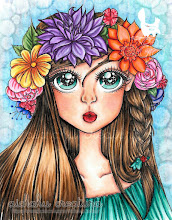That is, basically, the entire plot of the book. While there were many points of tension, there wasn't really any typical climax or crisis in the middle of the book, which the characters needed to resolve. The crisis/disaster has already happened: the world is dead, from an un-named apocalypse. One could make a deduction that it's some sort of nuclear winter that has befallen the world.
I was driven to read the book, I believe, entirely by my emotional connection with the father and son, both who remain nameless to the end: The Everyman and The Everyboy, perhaps. I just didn't want them to die or come to any harm, rooting for them all the way. Yet, all the while, I asked myself, "Why?" Why did I want them to make it? What is left for them in that dark, barren, hopeless world?
I was unable to put down the book, but while reading on the bus or in public, there were numerous times I was so close to crying and I had to stop. I'm so glad that I was reading in the privacy of my room last night, because by the time I got the end, I was bawling. Weeping uncontrollably yet, not wanting to stop, for all the heart-break and fragile love.
The book has been made into a film, similarly titled, The Road, directed by John Hillcoat and starring Viggo Mortensen as the father. Sad to say, stills from the film do not live up to how I imagined the world from the book would look like.
I suppose for the purposes of filming, there needs to be sufficient light and colour, but the stills seem to make the world look too happy, too bright, too alive, and simply too promising.
McCarthy's prose on the other hand conveyed to me an unrelenting bleak and harsh landscape, with a utter loss of hope, life and light. The silence of the broken world in The Road screamed in a single continuous harsh mono note.
The entire book was written in a third-person narrative. Conversations did not have the reported speech quotations and sometimes words not attributed to the speaker but like in a written play, you can hear the silent actors speaking the words in your mind. I felt this was a fantastic device. Combined with the detached third-person narrative, it made an extremely effective way to convey the sense of loss, loneliness and desperation.
My heart was wrenched by the relationship between the father and son. There was awful beauty in the touching way the father never ceased to protect and care for the son. Like any parent would, he wanted to shield the son from the horrors of the world, but there came a point when, like any parent would, he realised his son has to grow up. This made all the worse by the fact that the world is indeed The Horror. Where else could he turn their eyes? How could the father protect the son?
As the son grows up in the passage of their journey, one sees how he comes to accept the reality of the life he was born into. He kept asking to keep various people he meets along the way. For example a child about his age, that he spotted but lost. A dog. An old man. I didn't quite understand why he kept wanting that. And why he kept asking who else is in the world. Or where are "the good guys".
Finally when I woke up this morning, I had a thought and I realised, he was afraid he'd be alone, with the inevitability of death that he foresaw coming.
Such awful, awful sadness. Images from this book remain etched in my mind. Passages of the prose and their conversations ring on.
This is a brilliant book. I love it. It'll be one book that I will go back to reread every once in a while, perhaps bringing tears to my eyes again and again.
"He leaned his forehead on his arms crossed upon the bar handle of the cart
and coughed. He spat a bloody drool. More and more he had to stop and rest. The
boy watched him. In some other world the child would already have begun to
vacate him from his life. But he had no life other. He knew the boy lay awake in
the night and listend to hear if he were breathing." - The Road, Cormac
McCarthy.
© Copyright. All rights reserved.


No comments:
Post a Comment